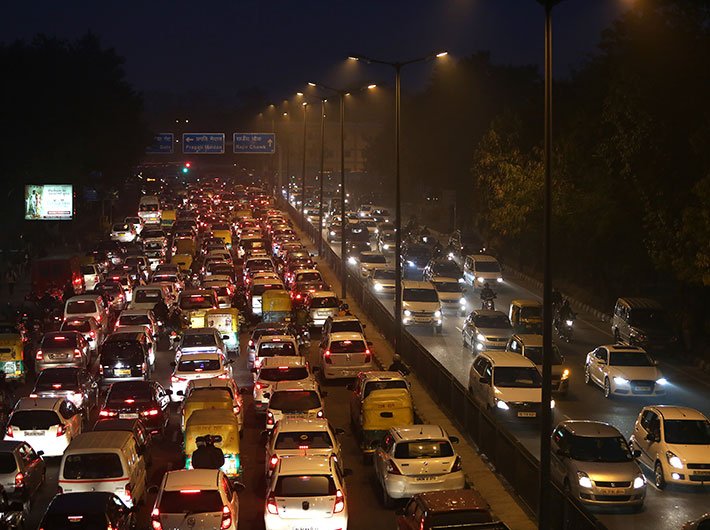There are numerous arguments in favour of the Delhi government’s odd-even scheme of road rationing, and of course there are as many arguments against it. That is understandable, given the complexities and a vast range of factors involved.
Yet, grudgingly or otherwise, with or without rampant violations, it is finally happening.
The cynicism is slowly giving way to a good-natured acceptance, leading to a sense of civic participation. People are coming to look at it as a cause or mission – to solve a common problem, even if it is not a full solution. If Arvind Kejriwal can consolidate this civic sense, more eco-friendly measures can be built on it.
In the meanwhile, here are some pointers that need to be kept in mind, to make the scheme more effective, when the government reviews it at the end of the fortnight:
* Exemptions kill the spirit of the common fight. They also make implementation more difficult, the police chief has said. The exemption list has to be reworked after January 15. Either women – that is, half the population – should not be exempted, or male co-travellers should be alright.
* Timings need to be relaxed. The current range, from 8 am to 8 pm, is full 12 hours, and it can be restricted only two hours when people commute to or from work, say, 9 am to 11 am and 5 pm to 8 pm.
* Days too need a rethink. Why include Saturday in the scheme, when a significant population of Delhi is either working for government or with government? A Saturday, for many, is the first half of the weekend, and it should have the same status in the scheme as a Sunday.
* Private vehicles operators have been roped in to augment the capacity of public transport, but it’s going to take a while before commuters realise that the white private bus or the yellow school bus is actually in DTC (Delhi Transport Corp) service. In any case, this is supposed to be a temporary measure, and the number of DTC’s own buses will have to be increased. More than the Metro, it is the bus that ensures – if not the last-mile, at least the later-mile reach.
* Punishing the violator is crucial to the success of the scheme. These days, Delhiites’ favourite time-pass on the road is to spot the violating odd- (or even-) numbered car. The more violators there are on the roads, more the temptation will be for many others to join in. The police, understandably, does not have the numbers to monitor every nook and corner of the vast city. Maybe, someone will come up with an app to report the violations.
